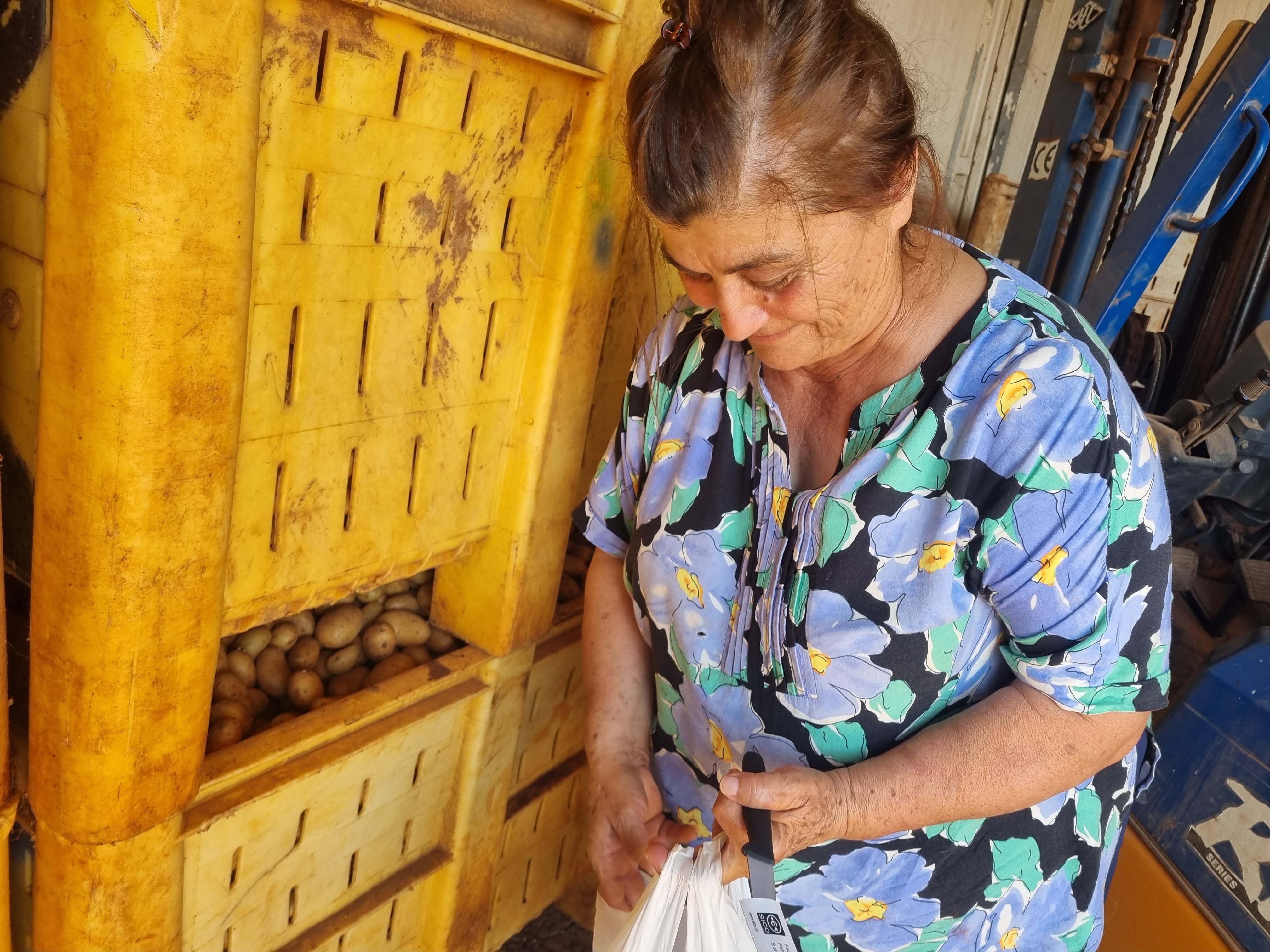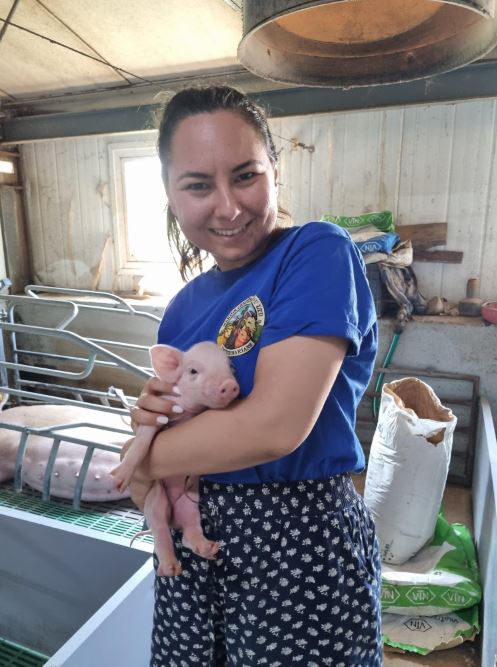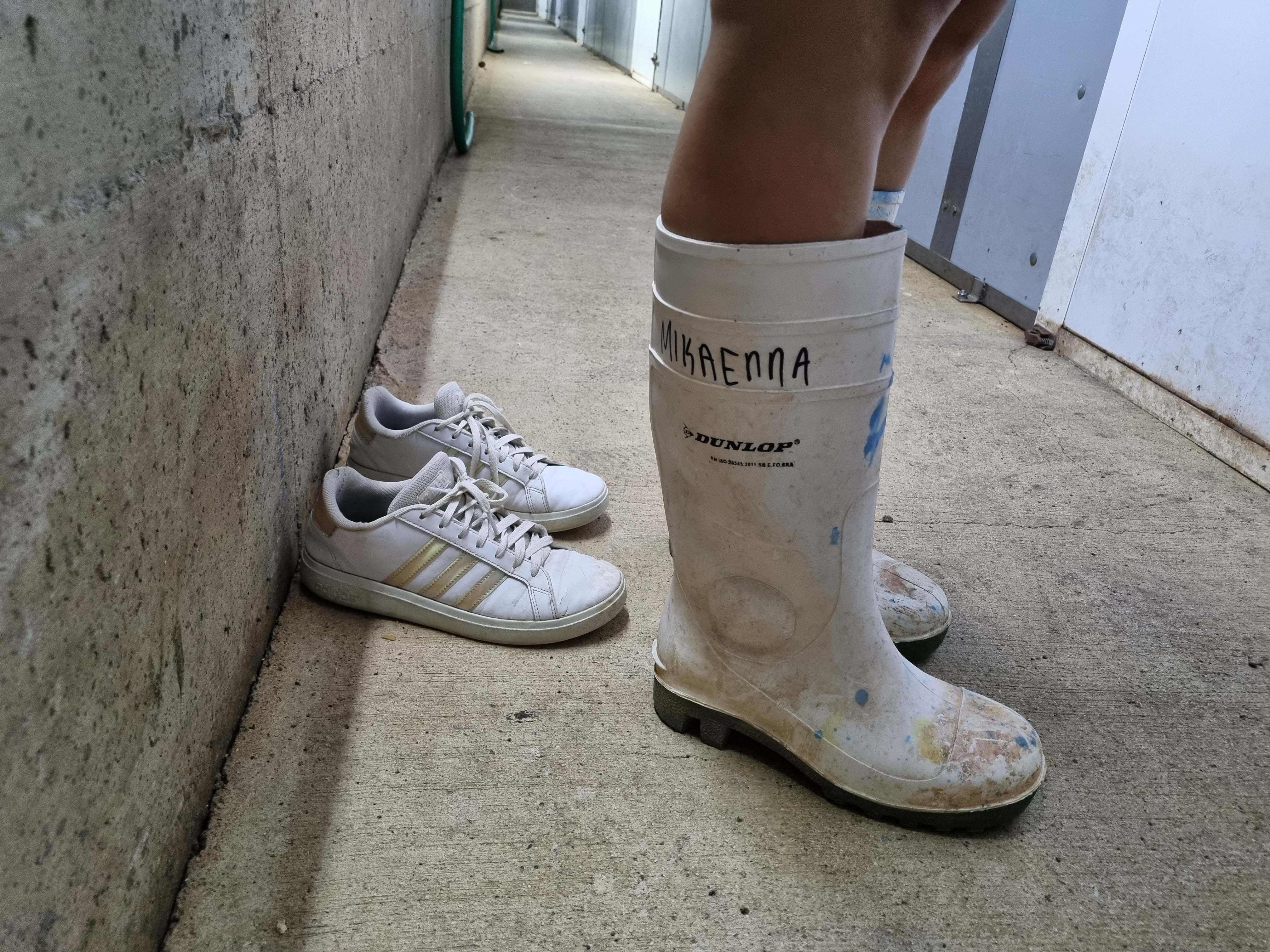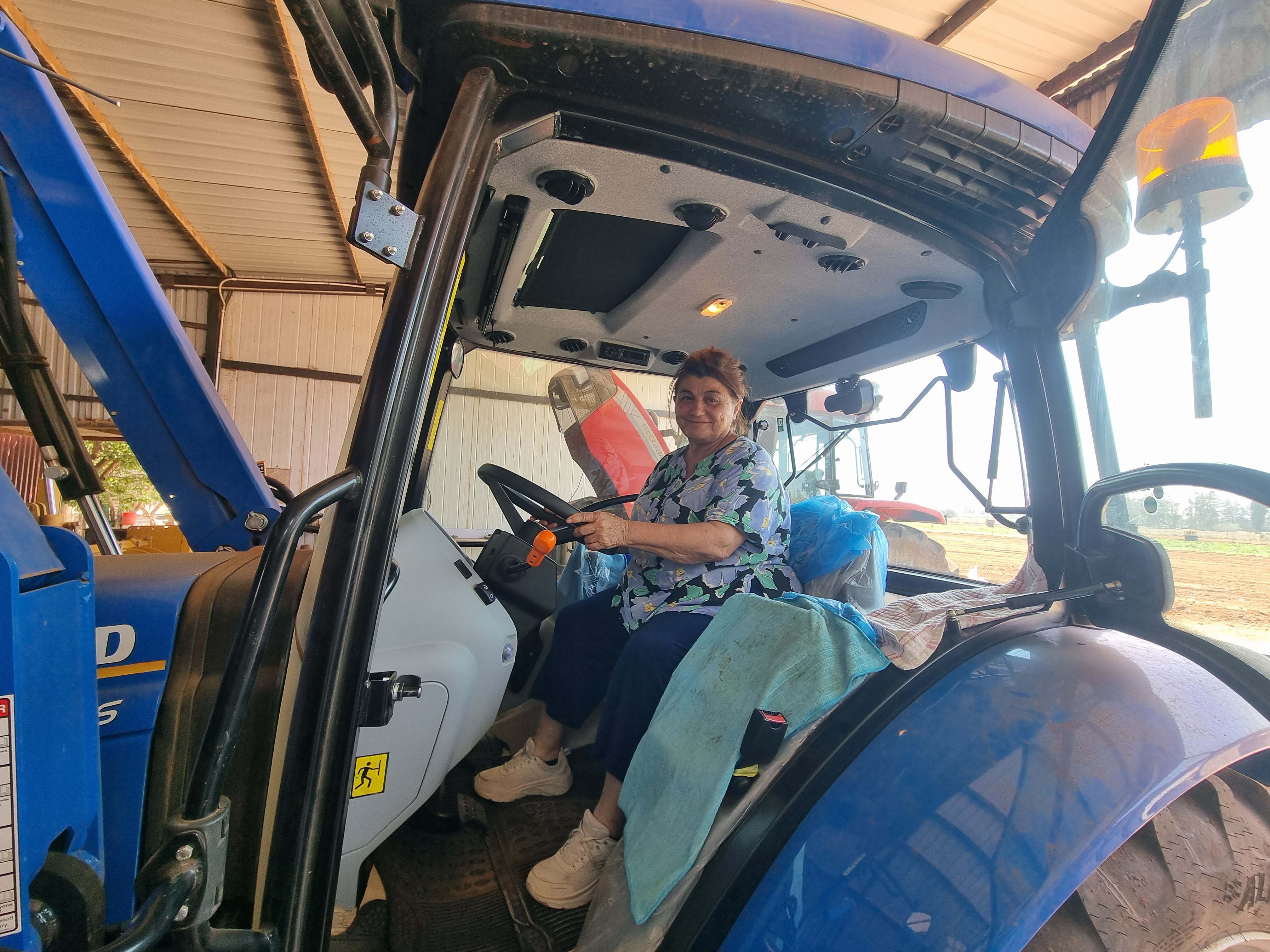Quiet force in the fields
Roughly 15 per cent of Cyprus is classified as agricultural land, an estimated 34,000 farms spread across the island. Farming remains high on the public agenda, with agricultural representatives regularly voicing concerns. Women, however, are rarely visible in these discussions.
In 2020, 21.2 per cent of farmers in Cyprus were women, down from 23 per cent in 2016 and below the EU average of 31.6 per cent, despite ongoing government efforts to support women in the sector.
The agriculture ministry says it is working to change that. Recently, a total of 49 women received nearly €2.5 million in support, including €650,000 through a scheme for young farmers, which benefited 28 women.
What does this support look like in practice? And what challenges do women still face in the fields, in the barns, and in balancing it all?
Eva Yerolemou Andreou, Katerina – who asked her last name not be used – and Mikaella Economou have all built lives in farming. Their stories reflect the persistence, the challenges and the joy of modern-day farming.
“I have been driving tractors for over 50 years”
“I was 13 years old when I first drove a tractor,” Eva says, with a mischievous smile. This was more than 50 years ago.
Eva is now 64, still driving tractors and has long run a potato, onion and louvi farm together with her husband in Avgorou. Her three children all pursued careers outside the agricultural sector. She grew up in a in a farming family of eight, where women carried the full weight of the work: five girls including her, one brother and her parents.
“My mother was always in the fields, back then things were very different,” she explains. While her mother was out helping in the fields, her sister took care of the house and siblings.
She remembers lifting heavy loads and spending long hours in the fields. With their mother employed outside the home, her older sister took over many responsibilities cooking, organising, and getting the younger children ready to join the others in the fields. Back then, her father led the farm, although her mother was always deeply involved. So, does she see a difference in how women and men run farms?
“When women are involved in farming, it’s more successful,” she says with a laugh, but without a hint of doubt.

When Eva became a mother herself, she chose a different path, partly due to technological progress. With modern machinery and changing expectations, she found a way to raise her children and run the farm without repeating the same hardships.
From interior design to pig farming
Dozens of kilometres from Eva’s farm, in Meniko in the Nicosia district, a Greek flag waves over the pig farm of Mikaella and her father. Her involvement in the family farm is a relatively recent chapter.
“I was always here, but I never really got involved,” she says.
That changed four years ago, when she decided to give farming a real try after having studied and worked in interior design in Birmingham.
“Our dad let us choose the career path we wanted,” she says, referring to herself, and her siblings. Her sister runs her own clothing brand, her brother is set to head out for studies, and their mother mostly works outside of the farm.
“Mostly, I take care of the management side, keeping track of orders, overseeing production, and generally making sure everything runs smoothly,” she explains.
Though not officially registered as a farmer yet, Mikaella works full-time on the farm as an employee. And she certainly brings a fresh energy to the farm, far from the usual stereotype: Mikaella wears white Adidas with golden shimmer, comfy shorts, and a shiny engagement ring.

Before entering the barn to see the piglets, the conversation turns to a topic that doesn’t often make headlines in the context of farming: family planning.
Although Mikaella is very clear that she wants to have children in the near future, she is also fully aware that taking parental leave while working on the family-run farm is unlikely. Stepping away for several weeks or months simply isn’t an option, and Mikaella is well aware of that.
If she were to have a child, she says she would expect to return to work within two weeks, with the baby likely by her side on the farm. The rhythm of farm life rarely slows, but the family environment, she explains, helps keep everything steady, childcare included.
She leaves an impression of quiet confidence and a relaxed outlook, sure of the life she is shaping.
On the way to the barn, she swaps her gold and white Adidas for a pair of rubber boots marked with her name. The shift looks effortless. Perhaps this is what modern farming can look like: Hands-on, but not without a sense of style.
A need for infrastructure for farming and family
In Kato Moni, Katerina, a friend of Mikaella, tends to around 14,000 pigs, from piglets to adults. Though raised in a farming family, her journey into livestock wasn’t entirely planned.
Katerina is 45 now, has two kids aged 13 and 16 and a husband that works in a different field. She began working on the farm in 2006, first looking after the accounting, then gradually taking on more responsibilities. In 2018, she took over the shares and now manages the farm.
She stepped in when her mother became sick and her parents, who began farming in the late 1960s, needed support. What started as a duty has grown into a way of life she now seems comfortable with. Initially, her brother was set to take over. But like her two sisters, he pursued his career in another sector but still helps Katerina out whenever needed.
“I was actually working in an audit office,” she laughs. Her background has proven useful, she says, always keeping a close eye on the books, making sure the business is going well, from managing costs to collecting payments from butchers who buy their pork.
Katerina has never received any female-focused funding in agriculture, although she recently came across a leaflet for a digital skills training program called the Gaea project.
According to its website, Gaea stands for Granting Access to Employment and Entrepreneurship in Agriculture for women, and aims to help women “thrive as successful, confident and resourceful entrepreneurs” in rural areas.
While she says she appreciates initiatives like this, Katerina explains that what she really needed was practical support from the government, especially during the years when her children were in primary school.
“You pick your kids up from school at 1pm and it interrupts your whole day,” she says.
And it does not stop there. In rural areas, after school tutoring for children often means a long drive, which interrupts the daily demands of farm work. Her and Mikaella know each other through Uni Pork, a cooperative of pig farmers. They are the only two women involved.
Carrying the farm and the family
Eva, Katerina and Mikaella all come across as confident and hands-on. Each of them comes from a farming family, yet none has received funding targeted at women in agriculture.
“We need more infrastructure so we as women can do our jobs,” says Katerina, stressing that this in fact applied to all professions, not only farming.








Click here to change your cookie preferences